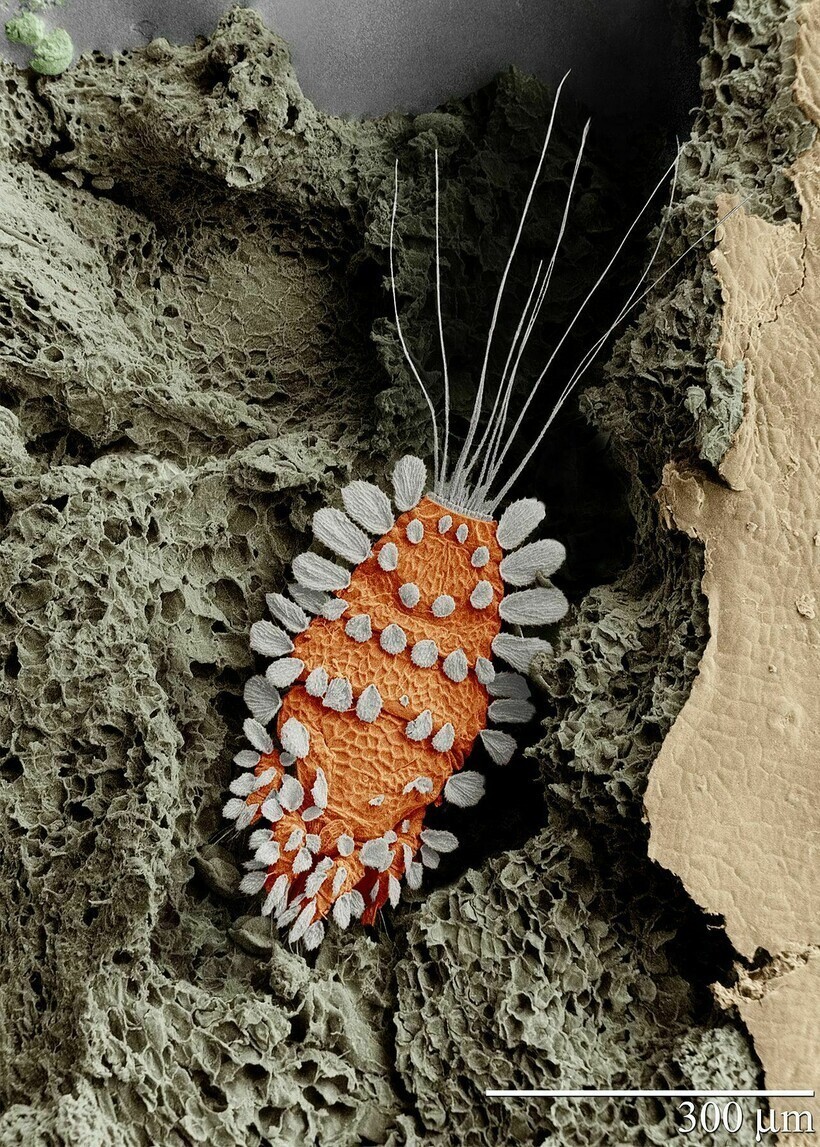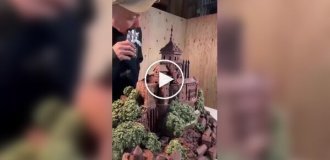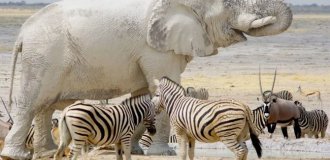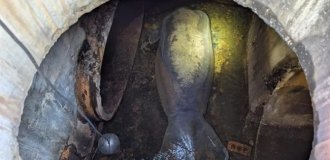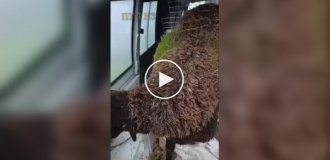16 macro photos showing that even the geniuses of science fiction cannot catch up with the imagination of nature (17 photos)
There are real monsters living right next to us, but because of the structure of their eyes, a person is not able to see them. Fortunately, technology can open up to us the unprecedented world of these tiny creatures. 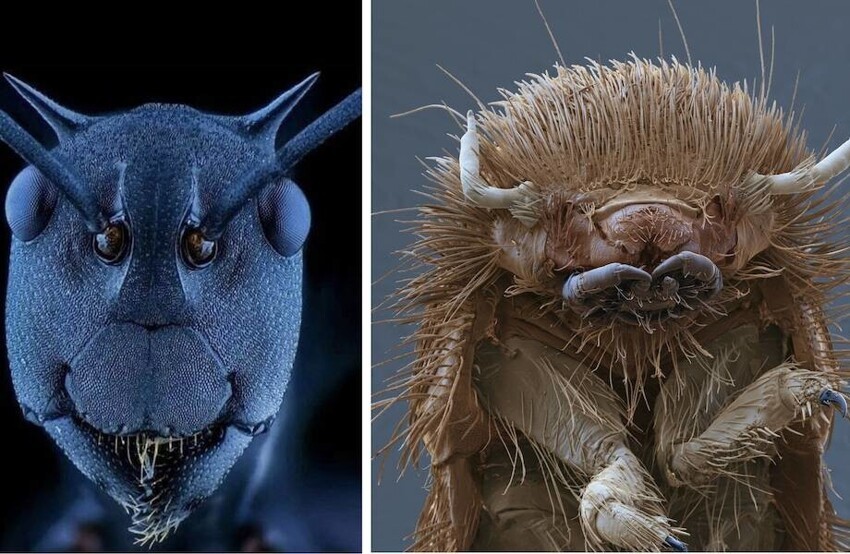
Perhaps it’s good that they are so small, otherwise our life would be much more often full of surprises. Plunging into the wondrous macroscopic world, look who lives right under our noses and even sometimes does mischief.
Velvet mite
His body really resembles velvet due to numerous thin hairs. 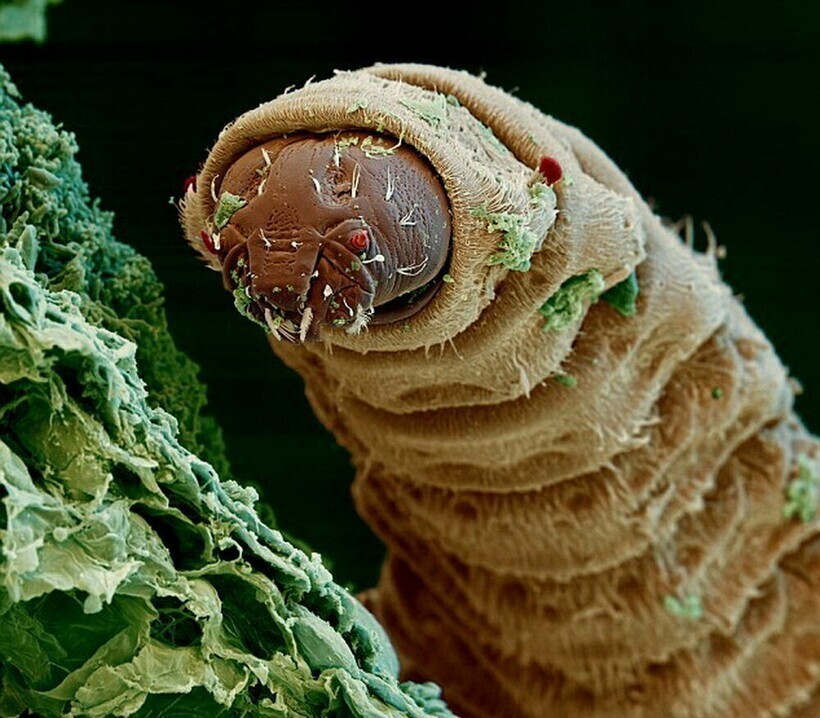
Baby moths
These larvae will happily eat your fur coats and other things stored in the closet. 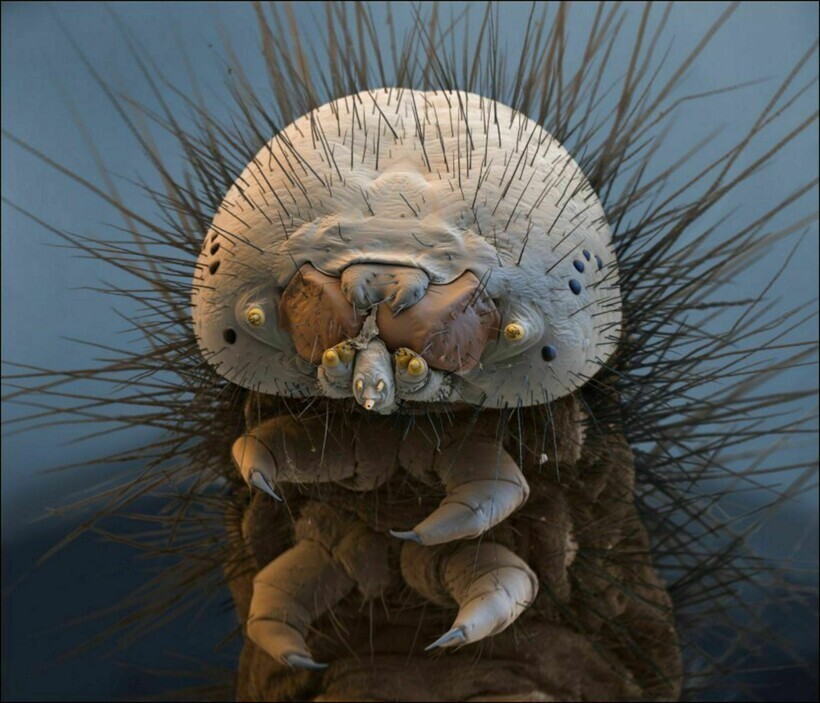
The unusually expressive look of a jumping spider
It does not weave webs, but actively hunts by jumping. 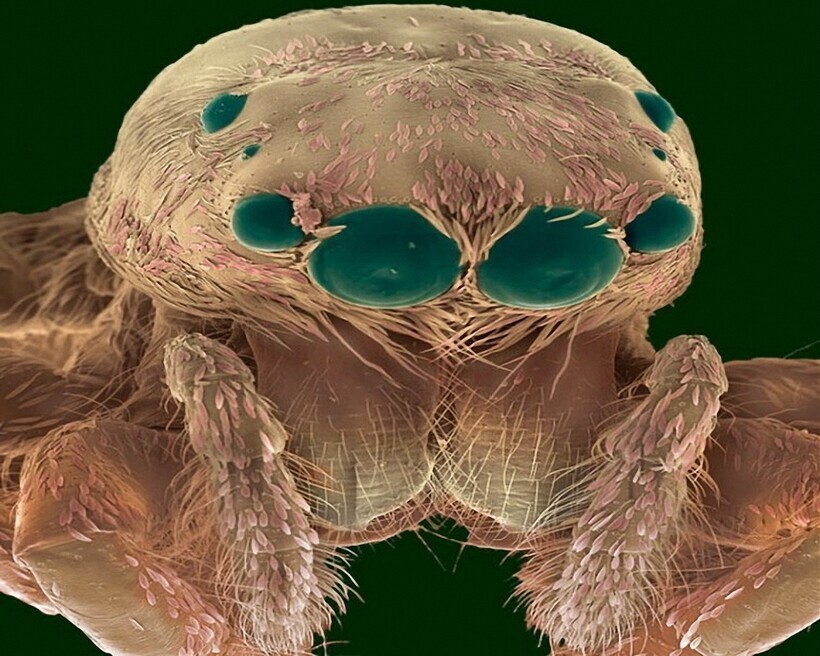
Ant face
In reality, forest health workers regulating the number of harmful insects look rather strange. 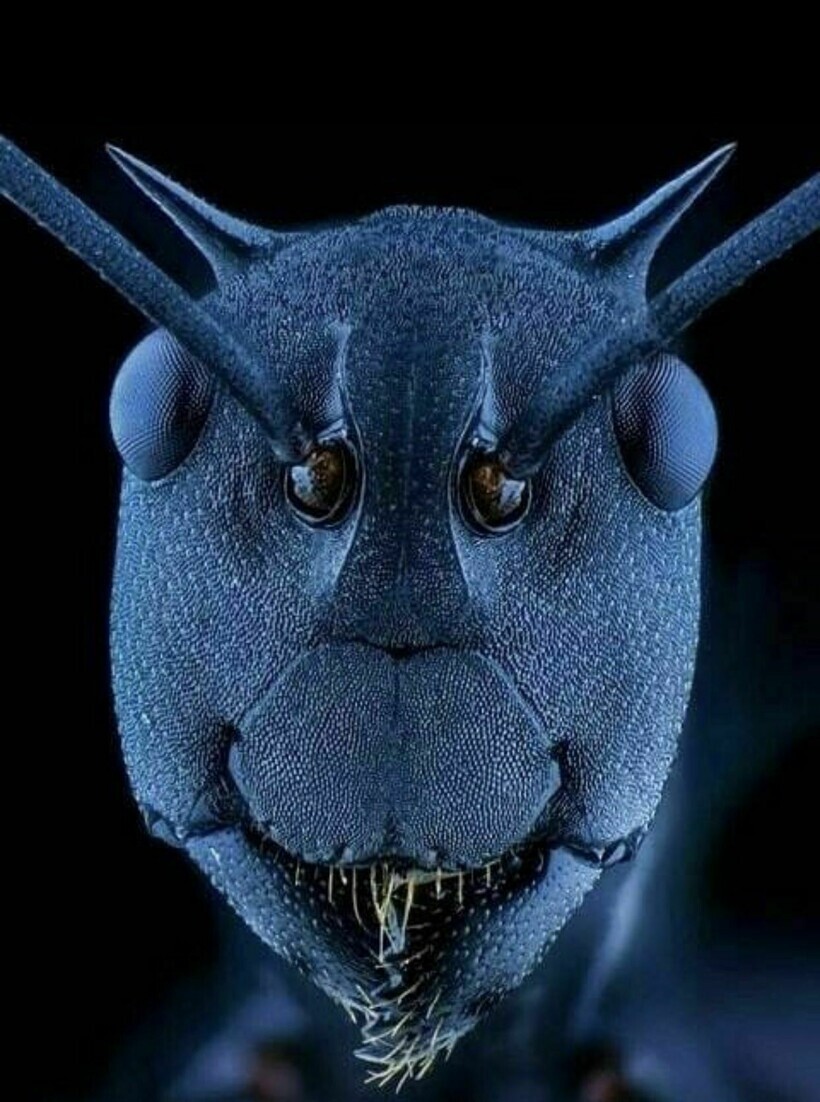
These tiny insects live in forest mosses.
They are called springtails. They eat organic matter and are true representatives of the prehistoric world of the planet. 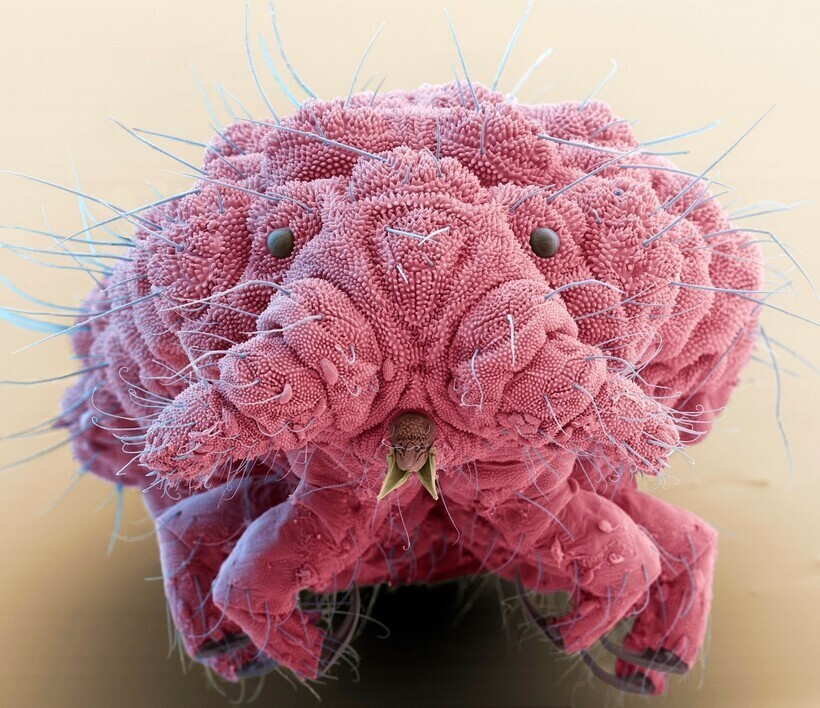
Jumping springtail living in the grass
At one time she can jump a distance that is a hundred times longer than herself. 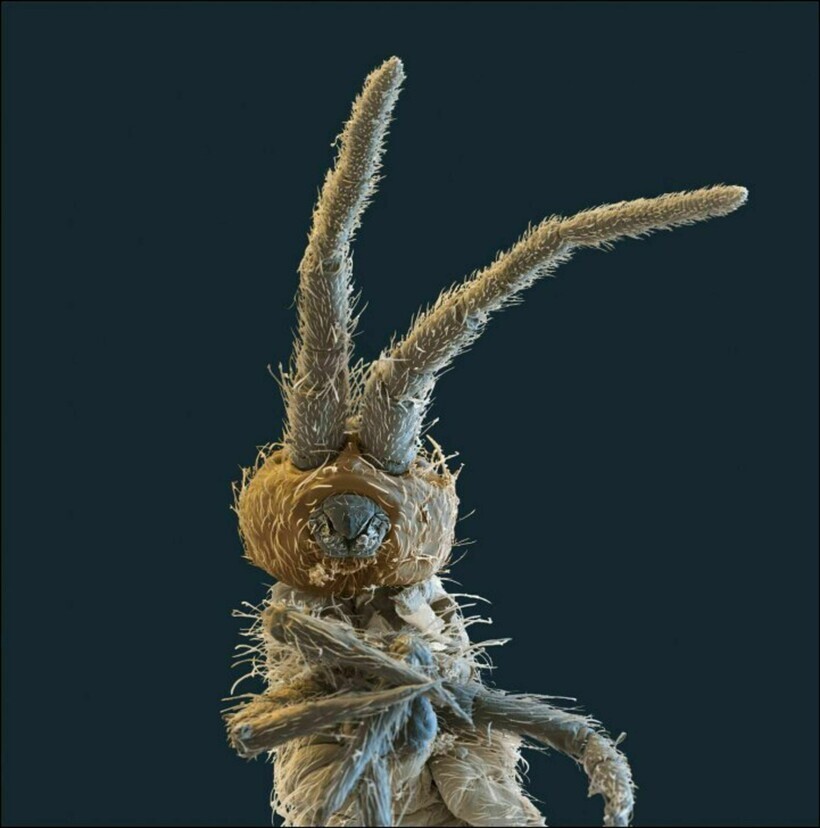
Offspring of swimming beetles
The cubs lead a predatory lifestyle. And they can even eat their relatives. 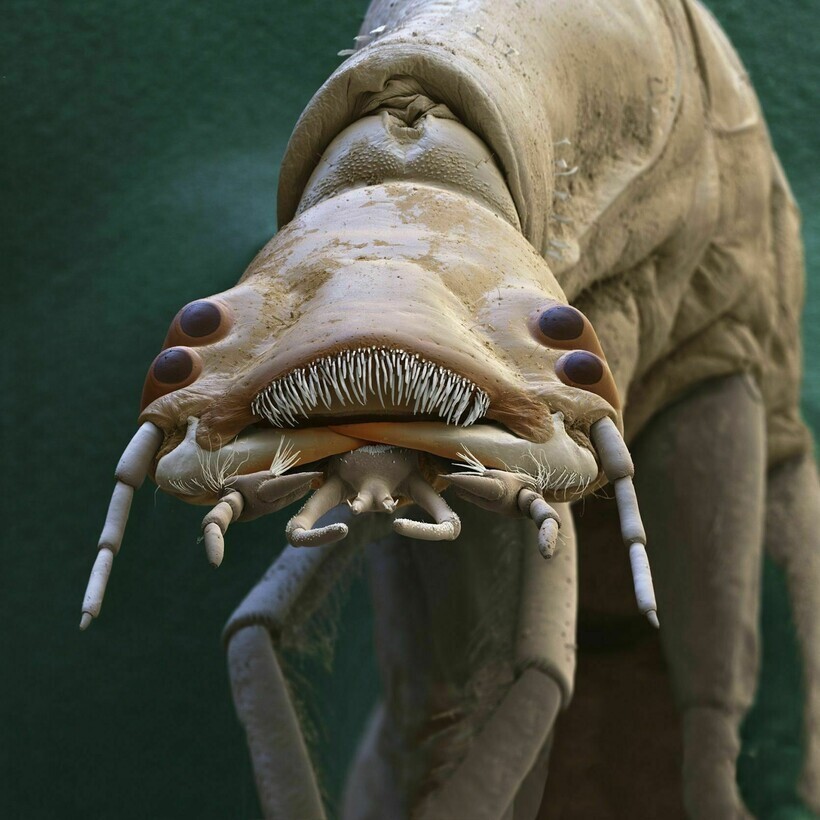
Butterfly caterpillar
Soon it will transform into the daytime blue butterfly Icarus. 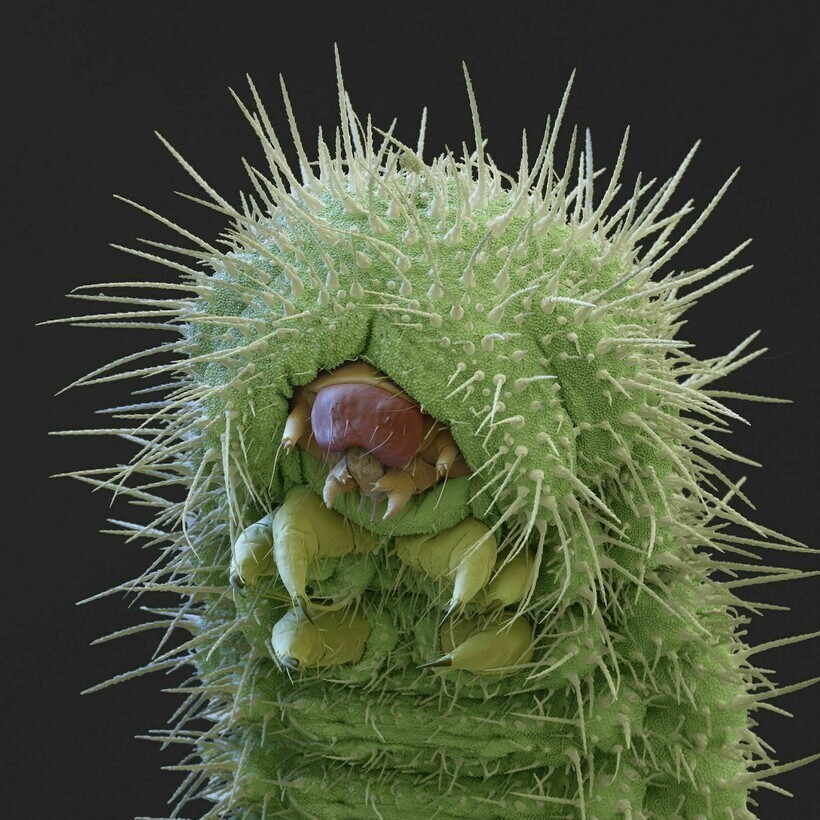
Tiny bull
In fact, these are the larvae of the leather beetle. These creatures live in human buildings and eat almost everything. We fell in love with ancient houses and museums. So, they will eagerly eat both organic matter and wood, cardboard, fabrics, carpets and even concrete. 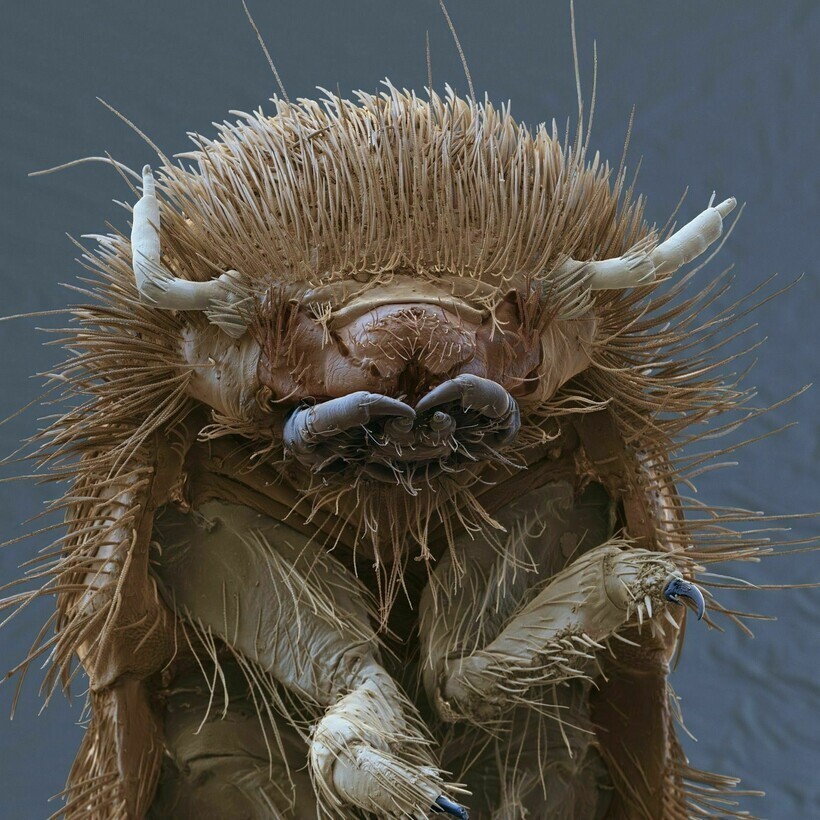
This is what a flea looks like living on cats
It's even called that - cat's. 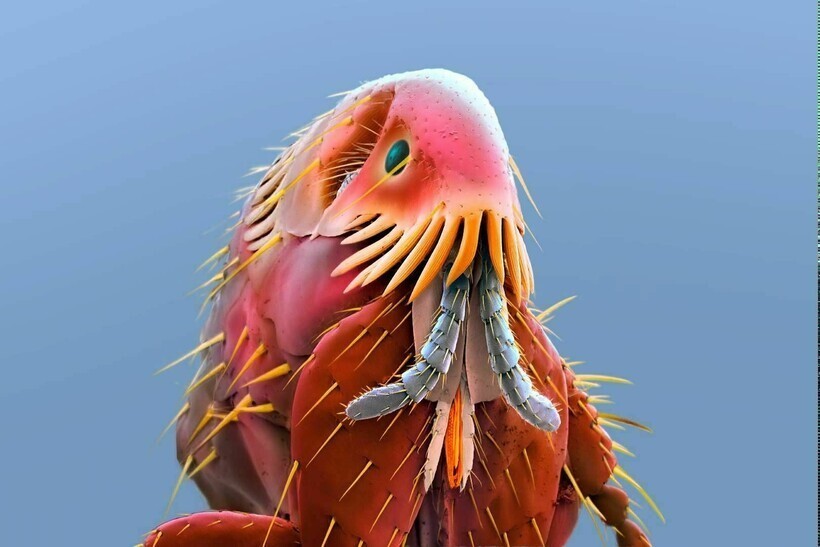
But the fleas that live on dogs look completely different.
They must be destroyed on time, as they are carriers of various diseases. 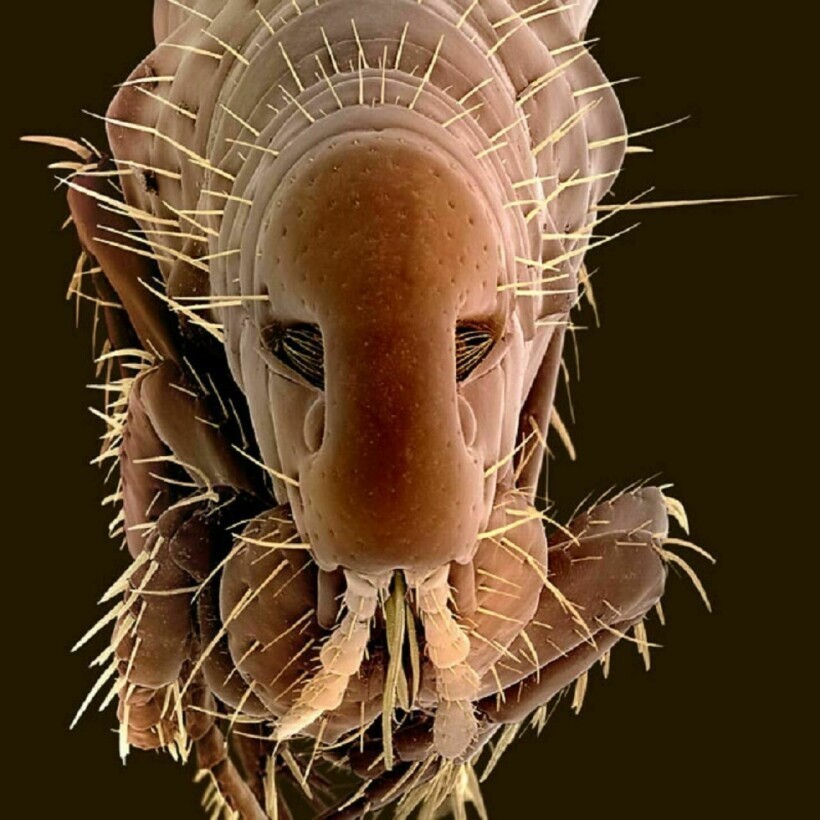
The dragonfly firefly is endowed with excellent vision from birth.
Which is not surprising, with eyes like these! She is able to see her prey from several tens of meters away. 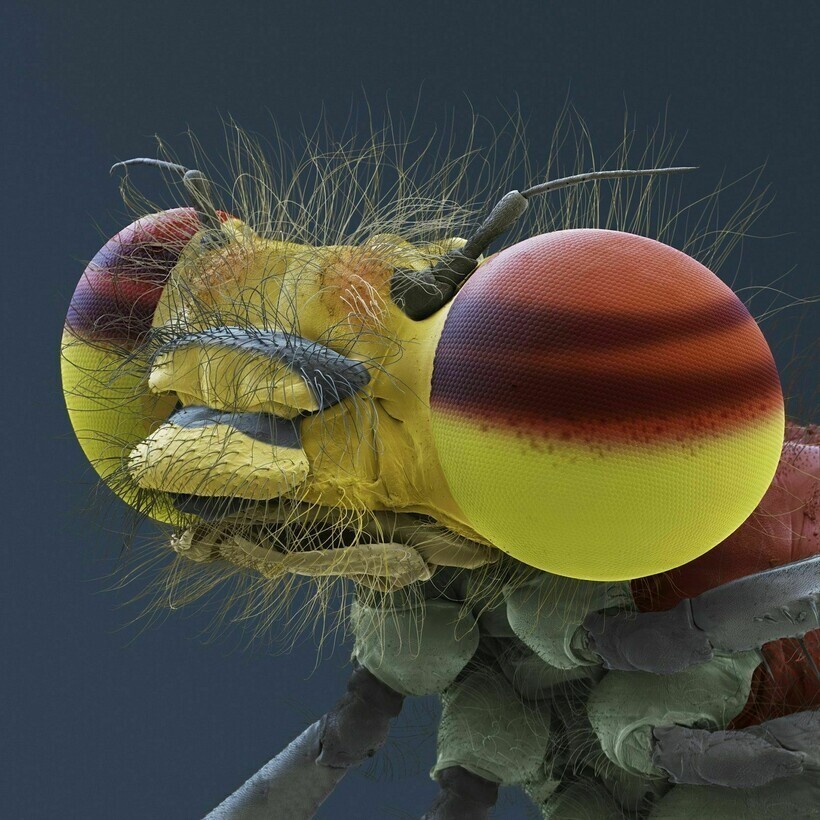
In the tropics you can find the yellow fever mosquito
Its larvae do not need water to survive; they develop well in places with high humidity. 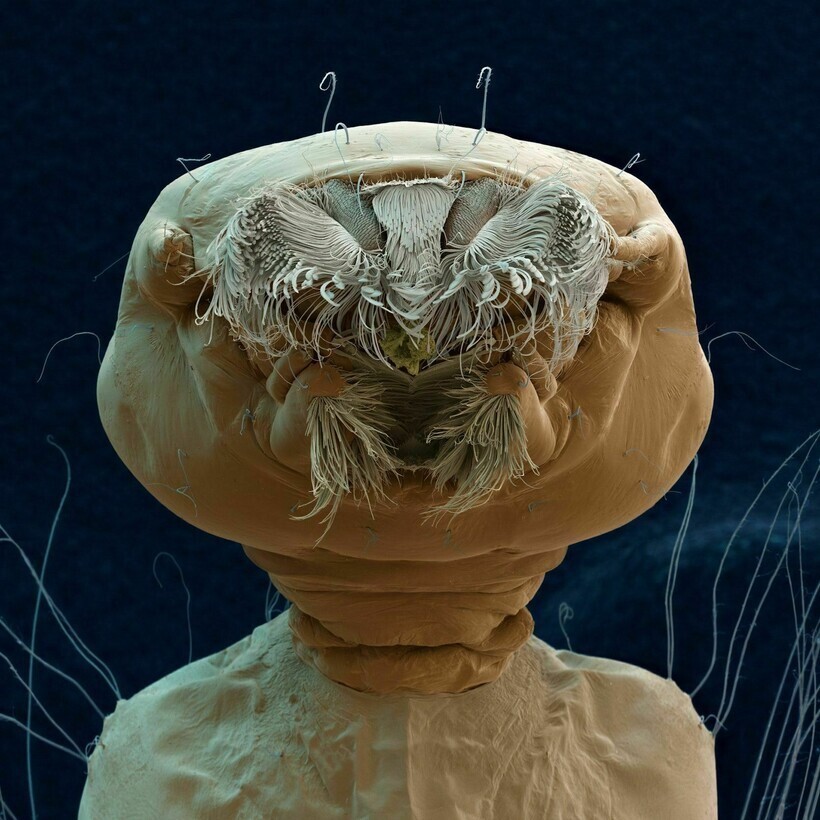
Thick proboscis mosquito
Its diet does not include blood; it prefers zooplankton. 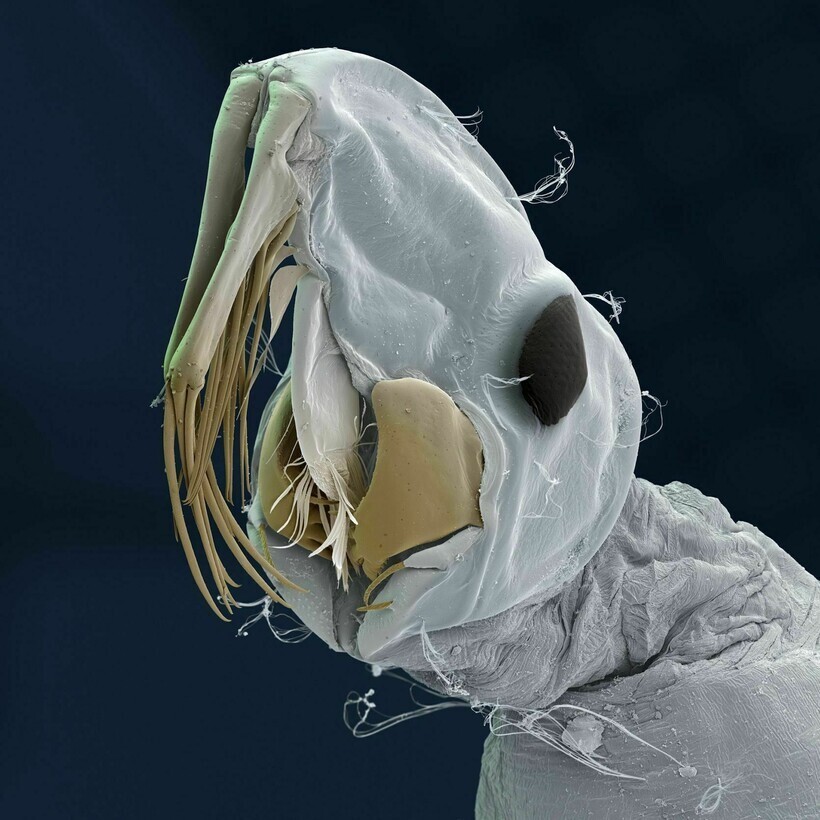
Singing cicadas
Many people love to listen to the chirping of cicadas on summer evenings, but they do not look so romantic. 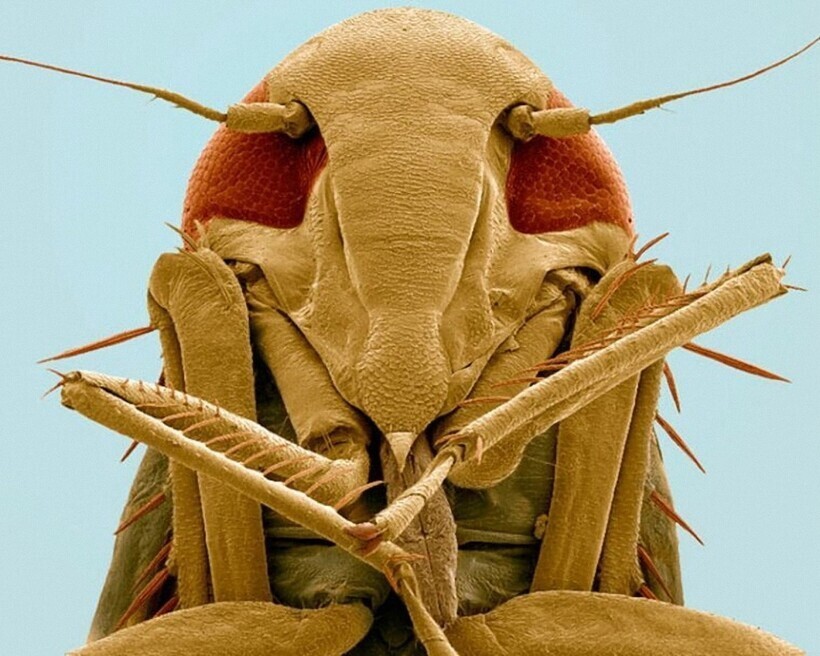
Peacock mite that lives on citrus plants
Do you think it’s for the better that our eyes are not able to see such small inhabitants? 